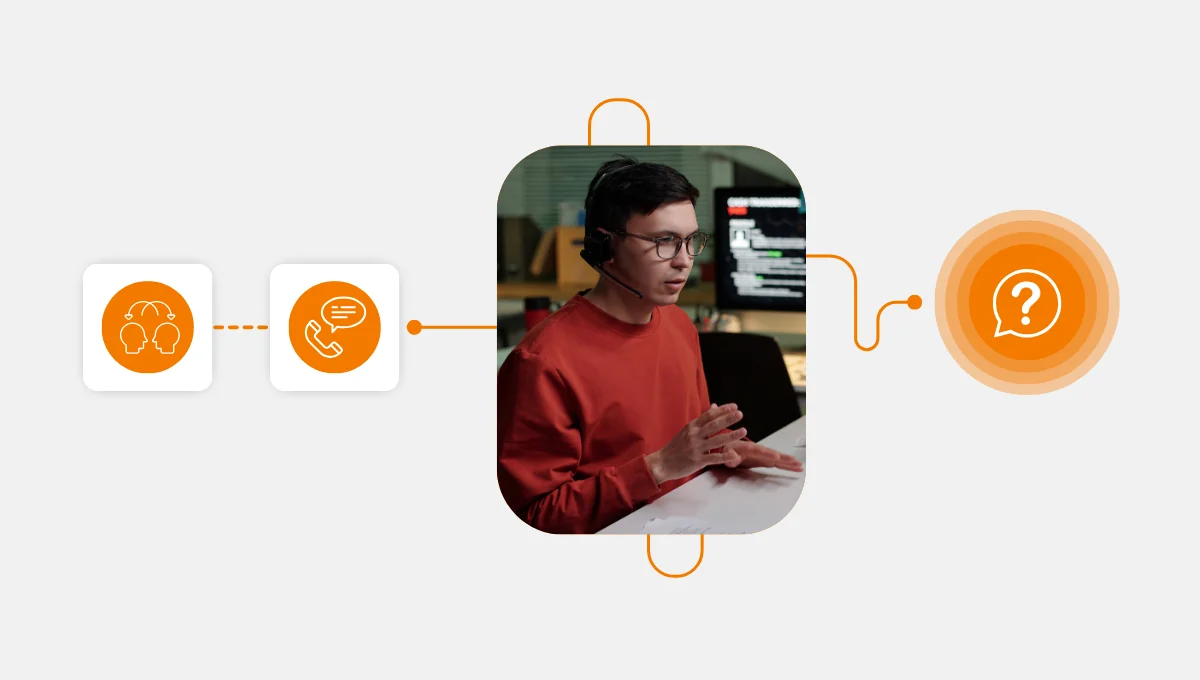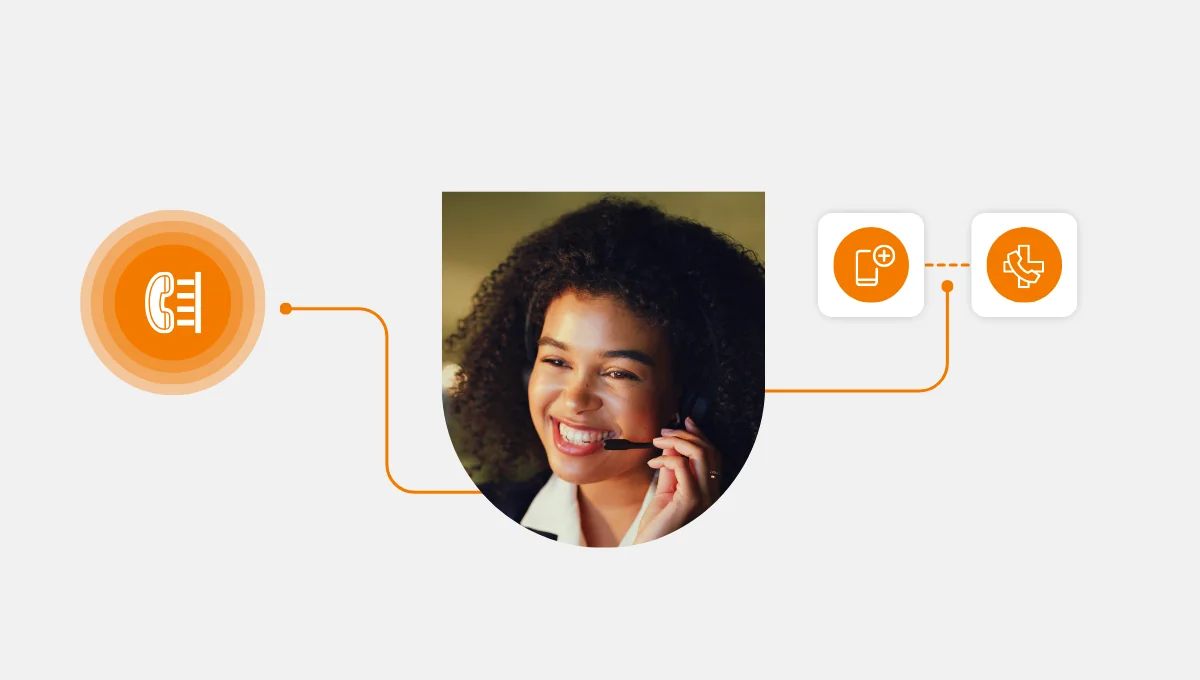You’re on a call with a frustrated customer. They’re vague and give you just enough to know something’s wrong but not enough to solve it.
So, what should you do now? You probe.
Probing questions are effective questioning techniques:
- Reduce escalations,
- Increase first-call resolution, and even
- Improve CSAT.
But not all questions are created equal.
So let’s break it down:
- What probing questions are,
- 5 types of probing questions, and
- How can you use them in real conversations?
What Are Probing Questions and Why Do They Matter
Let’s cut the jargon: What are probing questions?
Imagine a customer says, “My screen just goes black.”
A probing question might be: “Does it go black right after startup or only when you’re using a certain app?”
As you see, instead of accepting the first answer at face value, probing questions make a real fix possible by inviting:
- More context: You understand the full situation.
Example: Instead of just hearing “My account is locked,” the agent learns it happened after a password reset attempt.
- Clarity: You clear up confusion.
Example: The customer says, “The system crashed” and you ask, “Do you mean the whole screen froze or just the app closed?”
- Emotional nuance: You understand how the customer feels.
Example: When a customer says, “I’ve been waiting forever,” a good probing question like “Has this been an issue with recent orders too?” helps show empathy and frustration level.
They’re especially crucial in support because customers rarely start with all the facts. Customer service probing bridges that gap, helping agents get to the root of the issue faster.

The 5 Types of Probing Questions
There are five essential types of probing questions every agent should have in their toolkit. Each one serves a different purpose, from clarifying confusion to confirming a fix.
1. Clarifying Questions: Use them to stop guessing and start understanding.
These are your “Did you mean…?” or “Can you explain that part again?” moments. When answers are vague, these questions shine a light on what’s fuzzy. They’re key to avoiding assumptions and miscommunication.
2. Exploratory Questions: Perfect for seeing the forest instead of just the trees.
These open the door to more information. “What happened before that?” or “How long has this been going on?” prompts help uncover the full context. They’re like a magnifying glass for the bigger picture.
3. Confirmation Questions: Use them to prevent wasted effort and work.
These are your reality checks. “So just to confirm, you tried resetting it already?” helps ensure everyone’s on the same page. It’s not about mistrusting customers, it’s about validating next steps.
4. Reflective Questions: Great for combining active listening skills with emotional awareness.
These bounce the customer’s words back to them. If someone says, “I’m frustrated because it’s too slow,” an agent might ask, “When you say slow, do you mean loading times or response delays?” This shows empathy while inviting specifics.
5. Leading Questions: Ideal for nudging toward action or de-escalation.
A leading question suggests a possible action without forcing it. For example, instead of saying “Try this now,” an agent might say, “Would you be open to trying this workaround while I check with the tech team?” This makes the customer feel in control while guiding them toward a helpful next step.
Why Your Agents Need Probing Skills (And How to Teach Them)
POV: In support, tone matters, but technique wins.
You might think these probing questions sound simple enough that any agent can ask easily.
But here’s the thing: not every agent naturally knows how or when to use them. In stressful situations, even the most obvious follow-up can be forgotten.
That is why you need call center questioning techniques and structured call center training.
Managers can help agents build probing reflexes by practicing:
- Roleplays to practice real-time responses,
- Reviewing actual support calls to learn from successes and mistakes, and
- Using agent coaching tools to track progress and give feedback
Best-practice list for coaching probing:
- Encourage curiosity by rewarding agents who seek “why,” not just “what.”
- Roleplay miscommunications to show the cost of poor probing, like when an agent assumes the wrong product issue and wastes time.
- Use real call transcripts to highlight missed opportunities
- Build a “question bank” for each product or common issue to give agents go-to examples like, “When exactly does the error message appear?”
- Monitor probing performance with QA scoring to track whether agents ask enough follow-ups before offering solutions.
Train for understanding, not interrogation.

Tools That Help Agents Ask Better Questions
Tech won’t replace empathy, but it can certainly support it.
Smart tools make it easier to track and coach probing behavior. With call monitoring and coaching tools, supervisors:
- Tag specific question types during reviews (e.g., clarifying, confirmation)
- Highlight weak probing moments for follow-up training
- Provide targeted feedback with context and examples
Combined with transcripts and AI analysis, these tools make asking better questions something you can measure and create effective communication in support.
With the Call Center Studio features and smart tools, you‘ll have all of them below:
- Flag keywords in real time and provides contextual coaching tools
- Detect sentiment and probe depth during calls
- Custom QA scorecards track probing behaviors across calls
- Integrated dashboards connect probing quality with call resolution techniques metrics and feed insights into ongoing customer needs analysis




